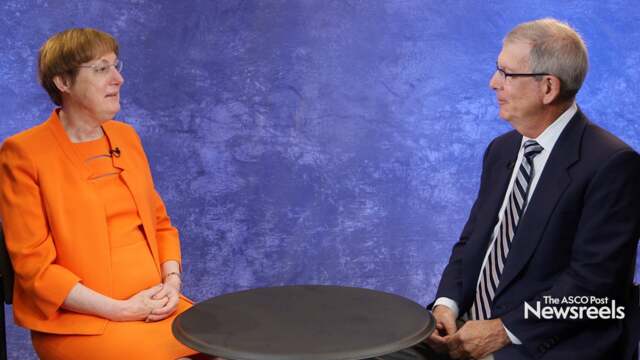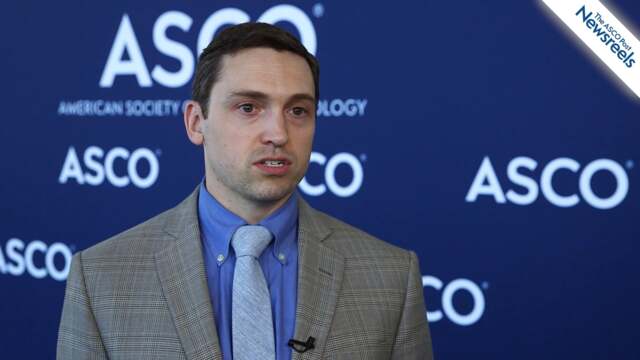Elizabeth A. Mittendorf, MD, PhD, and Lisa A. Carey, MD, on Breast Cancer: Commentary on the TAILORx Trial
2018 ASCO Annual Meeting
Elizabeth A. Mittendorf, MD, PhD, of Dana-Farber/Brigham and Women’s Cancer Center, and Lisa A. Carey, MD, of the University of North Carolina, discuss the impact of new phase III findings on chemoendocrine treatment vs endocrine treatment alone in hormone receptor–positive, HER2-negative, node-negative breast cancer (Abstract LBA1).
Allen S. Lichter, MD, ASCO’s former Chief Executive Officer, talks with Nancy E. Davidson, MD, of Fred Hutchinson Cancer Research Center, the 2018 recipient of the Visionary Leader Award, named for Dr. Lichter.
Ryan D. Nipp, MD, of Massachusetts General Hospital, discusses study findings on electronic symptom monitoring vs usual care to assess whether the intervention, tested in hospitalized patients with advanced cancer, can improve symptom burden and reduce the risk of readmission (Abstract 10005).
Sumanta K. Pal, MD, of the City of Hope, and Neeraj Agarwal, MD, of the Huntsman Cancer Institute, University of Utah, discuss the ongoing phase III Talapro-2 study of talazoparib with background enzalutamide in metastatic castration-resistant prostate cancer with DNA damage–repair deficiencies (Abstract TPS5091).
Sibylle Loibl, MD, PhD, of the German Breast Group, discusses phase II study findings on the addition of durvalumab to a taxane-anthracycline–containing chemotherapy in triple-negative breast cancer (Abstract 104).
Peter Hillmen, MB, ChB, of St James’s University Hospital, discusses phase III study findings on minimal residual disease negativity with venetoclax plus rituximab in relapsed or refractory chronic lymphocytic leukemia (Abstract 7508).





